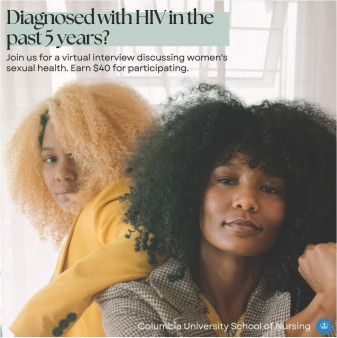Researchers are launching the AWARE study to understand factors that contribute to HIV infections among women, and what interventions can prevent HIV across the United States. The researchers are looking for women living with HIV to help identify strategies for engaging women who are behaviorally vulnerable to HIV infection in this study.
Statement: Led by Rebecca Schnall (Columbia University), Amy Johnson (Ann & Robert H. Lurie Children’s Hospital), and Mirjam-Colette Kempf (University of Alabama at Birmingham), this NIH-funded study will interview women living with HIV to inform strategies for recruiting and maintaining a large national online study targeted to women who may be vulnerable to HIV infection.
Background/facts: While HIV prevention strategies have improved and rates of new HIV diagnoses continue to decrease in the United States, there remains a critical need for HIV prevention interventions in cisgender women of color. The Centers for Disease Control and Prevention (CDC) reported that in 2019, about 7,000 new HIV diagnoses happened among cisgender women (meaning women who were identified female at birth and still identify as a woman). There is a need for greater understanding of this population in order to inform interventions to decrease new HIV and STI infections among this population.
Brief summary: The AWARE study will look at HIV and STI infection rates, combined with factors such as gender inequality, income, exposure to domestic and sexual violence, homelessness, and sex partner’s characteristics in a large, diverse cohort of cisgender women. In anticipation of this study, the researchers are looking for cisgender women who have been diagnosed with HIV in the past 5 years to participate in an in-depth interview with a researcher for the study. Participants will be asked to discuss what they knew about HIV prevention before they were diagnosed with HIV, explore factors that make cisgender women more likely to get HIV, and describe their thoughts about recruiting a national sample of cisgender women. Participants will receive a $40 Amazon gift card as compensation for their time.
Conclusions: Understanding factors related to HIV infection in cisgender women is critical for designing effective interventions for HIV prevention in this population. Engaging women living with HIV is an important step in determining strategies for reaching cisgender women who are behaviorally vulnerable to HIV infection.
AWARE is actively recruiting. To see if you are eligible, please click this link.






